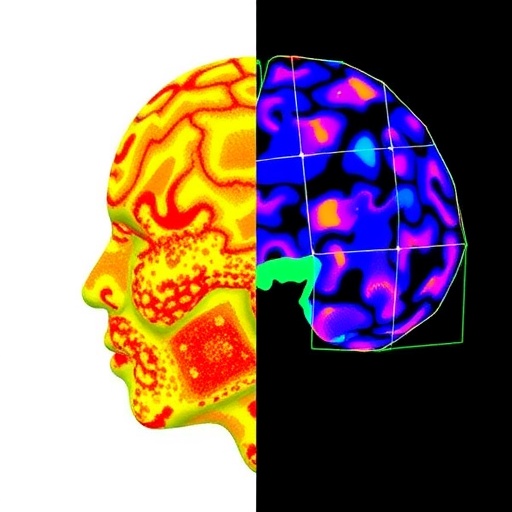In the ever-evolving landscape of artificial intelligence (AI), the intersection of machine learning and healthcare showcases one of its most promising applications: early autism detection. A recent literature review conducted by researchers Agrawal and Agrawal sheds light on the emergence of explainable AI (XAI) within this crucial field. The review meticulously documents the strides made in leveraging interpretable machine learning approaches to enhance the early diagnosis of autism spectrum disorder (ASD). This is a topic that touches the lives of many, given that early intervention significantly improves outcomes for children diagnosed with autism.
The significance of the Agrawal duo’s work cannot be overstated. With autism diagnosis often entangled in subjective evaluations and complex behavioral analyses, the introduction of AI can provide structure, accuracy, and ultimately, hope. Their literature review serves as a compass, guiding researchers and clinicians through the maze of available technologies, algorithms, and methodologies. By employing interpretable models, healthcare practitioners can not only access assessments based on data but can also understand the rationale behind these assessments. This transparency is essential in medical settings, where trust and understanding between practitioners and patients are paramount.
In their review, Agrawal and Agrawal highlight several key machine learning techniques that have shown promising results in autism detection. Among these techniques are decision trees, support vector machines, and neural networks. These algorithms, while powerful, often operate as ‘black boxes,’ obscuring the decision-making processes that lead to a diagnosis. The authors advocate for shifting the focus toward models that offer interpretability, allowing healthcare professionals to grasp how and why certain predictions are made. This shift could revolutionize the way children’s developmental disorders are assessed and treated.
One of the striking points made in the literature review is the urgency of early autism detection. A multitude of studies has shown that early intervention services can vastly improve cognitive, language, and social abilities in children diagnosed with ASD. However, current diagnostic tools, often reliant on observational studies or parent reports, can be misleading and inconsistent. Machine learning models have the potential to rectify this imbalance by providing a data-driven foundation for diagnosis, ideally making the process more reliable and less subjective.
An important aspect of explainable AI is that it not only aids in diagnosis but also fosters a collaborative approach between parents and healthcare providers. When parents can see how AI systems derive their conclusions, it can demystify the process and promote a collaborative atmosphere. This openness can encourage parents to engage more actively in treatment planning and discussions, leading to better overall outcomes for their children.
Furthermore, the review addresses the ethical considerations surrounding the automated diagnosis of ASD. With great power comes great responsibility; hence, employing AI in healthcare necessitates a discussion about data privacy, security, and the potential for bias in algorithms. Agrawal and Agrawal emphasize that these systems must be designed with ethical guidelines in mind to prevent unintended discrimination or misdiagnosis based on skewed data inputs.
The authors also underscore the importance of ongoing research in the development of new algorithms that are not only effective but also comprehensible. As the field progresses, the integration of cognitive models and psychological frameworks could yield more nuanced approaches to understanding autism. For instance, combining machine learning with insights from psychology may lead to algorithms that can detect not just the symptoms of autism, but also the underlying mechanisms that drive these behaviors.
While the journey toward integrating explainable AI in autism detection is fraught with challenges, the potential benefits are immense. The technology is at a crossroads where it can either advance the field of developmental disorders or fall into misuse through a lack of understanding and accountability. Each new development in machine learning presents an opportunity to refine and improve diagnostic processes, but it requires vigilance on the part of both researchers and practitioners.
In the grand scheme of AI’s role in healthcare, the findings of Agrawal and Agrawal serve as a beacon of hope. By focusing on explainability, this research underscores the need for not only technological advancement but also human-centered design in AI development. Without an empathetic approach, sophisticated algorithms risk becoming merely advanced tools rather than transformative elements in autism diagnosis and treatment.
As we move forward, the dialogue between engineers, clinicians, and patients must continue to evolve. For such systems to be successfully integrated into clinical practice, it is crucial for all stakeholders to participate in shaping these technologies. This collaborative effort will ensure that the systems developed are not just advanced in computational power but also grounded in clinical reality, effectively aiding in the diagnosis and treatment of young individuals diagnosed with autism.
In closing, the work of Agrawal and Agrawal could play a pivotal role in redefining early autism detection strategies. As the healthcare community embraces the potential of explainable AI, the emphasis on transparency, interpretability, and ethical considerations must lead the charge. The future may very well hinge on our ability to harness these technologies not just to identify autism but to create a compassionate and informed support system for families navigating the complexities of this diagnosis.
Subject of Research: Early Autism Detection
Article Title: Explainable AI in early autism detection: a literature review of interpretable machine learning approaches
Article References:
Agrawal, R., Agrawal, R. Explainable AI in early autism detection: a literature review of interpretable machine learning approaches. Discov Ment Health 5, 98 (2025). https://doi.org/10.1007/s44192-025-00232-3
Image Credits: AI Generated
DOI: 10.1007/s44192-025-00232-3
Keywords: Explainable AI, autism detection, machine learning, early diagnosis, interpretability.




